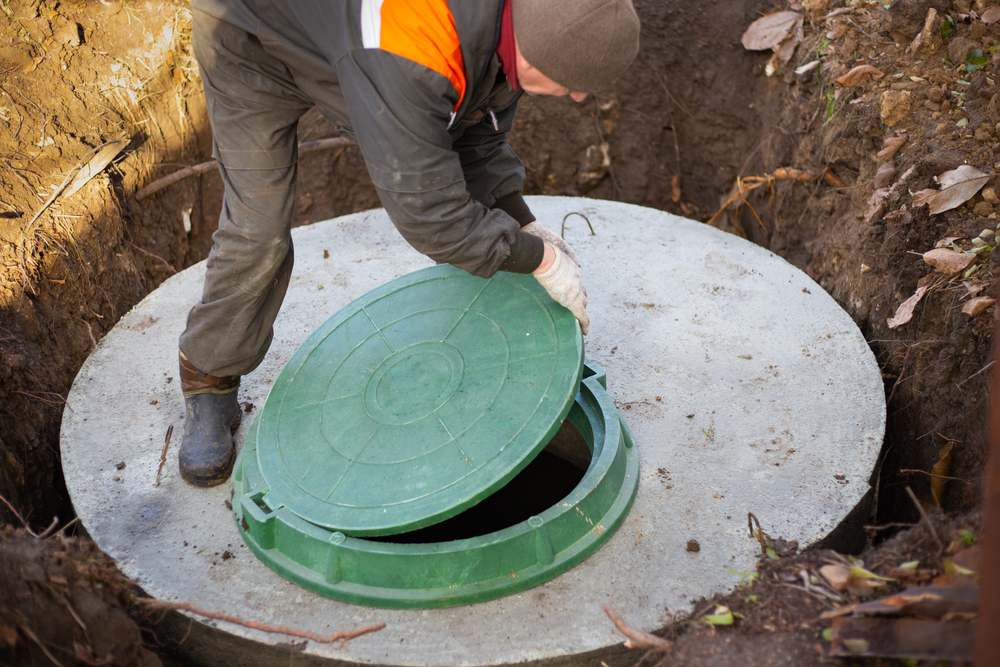How to Prevent Septic System Failures: Tips and Tricks

Understanding how your septic system works is crucial to preventing failures. Typically, a septic system consists of a septic tank and a drain field. The tank holds solid waste while allowing liquids to flow out into the drain field, where they are naturally filtered by soil. Over time, solids settle at the bottom of the tank, while scum floats to the top. Proper maintenance ensures that these layers do not build up excessively, which could lead to clogs or backups.
Regular Inspections and Pumping
Regular inspections and pumping are essential for maintaining a healthy septic system. A professional inspection every 3-5 years can uncover issues early, such as leaks or blockages, before they become major problems. Pumping frequency depends on the tank size and household usage, typically ranging from 3 to 5 years. Pumping removes accumulated solids, preventing them from clogging the drain field or causing backups into the house.
Watch What You Flush
What you flush down your drains can have a significant impact on your septic system’s health. Avoid flushing non-biodegradable items such as wipes, sanitary products, or cigarette butts, as these can clog pipes and stress the system. Additionally, be mindful of chemicals like bleach and strong cleaners, which can disrupt the natural balance of bacteria in the tank that break down waste.
Water Conservation
Water conservation plays a crucial role in septic system health. Excessive water use can overload the system, preventing solids from settling properly in the tank and potentially pushing untreated waste into the drain field. To conserve water, fix leaks promptly, install water-efficient fixtures, and spread out water use throughout the day rather than all at once.
Proper Landscaping and Drainage
The location and landscaping around your drain field can impact its efficiency and longevity. Avoid planting trees or shrubs with deep roots near the drain field, as these roots can infiltrate pipes and cause blockages. Ensure surface water drains away from the drain field to prevent saturation, which can lead to poor filtration and system failure. Regularly inspect the area for signs of standing water or odors, which could indicate drainage issues.
Use Septic-Safe Products
Using septic-safe products helps maintain the delicate balance within your septic system. Choose biodegradable soaps, detergents, and cleaners that are labeled as safe for septic systems. These products are formulated to break down more easily and are less likely to disrupt the natural processes within the tank. Avoid antibacterial soaps or harsh chemicals that can kill beneficial bacteria essential for waste breakdown.
Educate Household Members
Educating everyone in your household about proper septic system care is essential for prevention. Teach them what can and cannot be flushed or poured down drains. Encourage water conservation practices and explain the signs of potential septic system issues, such as slow drains, gurgling noises, or foul odors. By raising awareness, you can prevent accidental misuse and catch problems early.
Address Issues Promptly
Addressing any issues promptly is key to preventing minor problems from escalating into costly repairs or system failures. If you notice signs of a problem, such as sewage backups or wet spots near the drain field, contact a qualified septic system professional immediately. Ignoring these signs can lead to extensive damage to your system and potentially hazardous conditions for your household and the environment.
Maintain Records
Maintaining accurate records of inspections, pumping schedules, and any repairs or maintenance performed on your septic system is essential. These records provide valuable information for future maintenance and can help identify any patterns or recurring issues. Keep these records in a safe place where they are easily accessible to both you and any future homeowners, ensuring continued care and maintenance of the system.
Consider Alternative Systems
In some cases, alternative septic system designs may be more suitable for your property or provide added environmental benefits. Technologies such as aerobic treatment units (ATUs) or drip irrigation systems can offer increased treatment efficiency and reduce the impact on the environment. Consult with a septic system professional to determine if an alternative system is a viable option for your property and needs.
Conclusion
Preventing septic system failures requires proactive maintenance, careful water usage, and responsible waste disposal practices. By understanding how your septic system works and implementing these tips and tricks, you can extend its lifespan, minimize repair costs, and ensure it operates efficiently for years to come. Remember, a well-maintained septic system not only protects your property value but also safeguards the health of your family and the environment.
Need Septic Tank Services in Cleveland, TX?
Welcome to All Pro Septic! We are a family-owned and -operated septic tank cleaning business. We can install, repair, and maintain septic tanks for residential, commercial, and industrial properties. We also provide line cleaning, sewage pump repair, and clean grease traps, lint traps, and aerobic systems. We always offer free estimates to better your convenience. Do not let your septic tank stop you from wanting to use the restroom. Call us today and get a quote!
Categorised in: Septic System Maintenance
Comments are closed here.